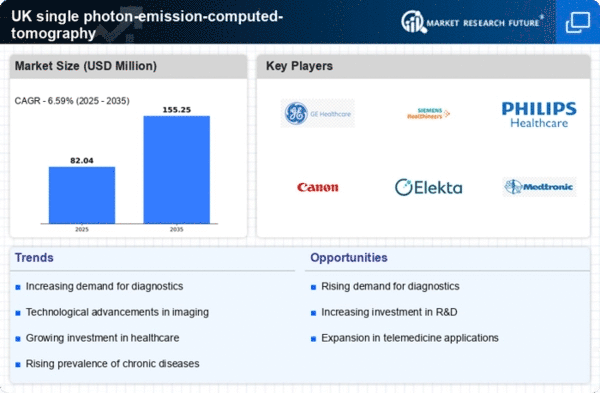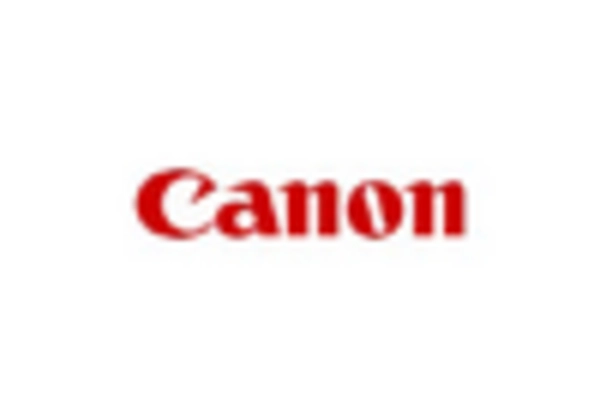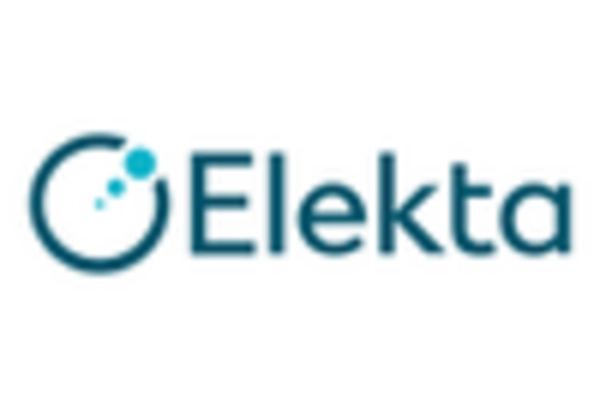Growing Geriatric Population
The demographic shift towards an aging population in the UK is a crucial driver for the single photon-emission-computed-tomography market. As individuals age, the likelihood of developing various health conditions increases, necessitating regular diagnostic imaging. The Office for National Statistics indicates that the proportion of people aged 65 and over is projected to rise significantly, leading to a higher demand for effective diagnostic tools. Single photon-emission-computed-tomography is particularly valuable in assessing age-related diseases, such as dementia and cardiovascular disorders. Consequently, the increasing geriatric population is likely to stimulate the growth of the single photon-emission-computed-tomography market, as healthcare providers seek to meet the diagnostic needs of this demographic.
Increased Healthcare Expenditure
The rise in healthcare expenditure in the UK is a notable driver for the single photon-emission-computed-tomography market. With the government and private sectors investing more in healthcare infrastructure, there is a growing emphasis on advanced diagnostic technologies. The UK government has committed to increasing the NHS budget, which is expected to enhance the availability of sophisticated imaging modalities. This financial support may lead to the procurement of more single photon-emission-computed-tomography systems in hospitals and diagnostic centers. As healthcare facilities upgrade their equipment to meet modern standards, the demand for SPECT technology is likely to increase, thereby fostering growth in the single photon-emission-computed-tomography market.
Rising Awareness of Early Diagnosis
The growing awareness of the importance of early diagnosis among patients and healthcare providers is a significant driver for the single photon-emission-computed-tomography market. Educational campaigns and initiatives aimed at promoting preventive healthcare are encouraging individuals to seek diagnostic imaging services sooner. This shift in mindset is particularly relevant in the context of diseases that benefit from early detection, such as cancer and heart disease. As patients become more proactive about their health, the demand for effective imaging solutions like single photon-emission-computed-tomography is likely to rise. This trend suggests a potential increase in market growth as healthcare providers adapt to meet the evolving expectations of patients regarding timely and accurate diagnoses.
Technological Innovations in Imaging
Technological advancements in imaging modalities are significantly influencing the single photon-emission-computed-tomography market. Innovations such as improved detector technologies and advanced reconstruction algorithms enhance image quality and reduce scan times, making SPECT more efficient and user-friendly. The integration of artificial intelligence in image analysis further streamlines diagnostic processes, potentially increasing the adoption of SPECT in clinical settings. As healthcare facilities in the UK strive to provide high-quality patient care, the demand for cutting-edge imaging technologies is expected to grow. The market for single photon-emission-computed-tomography is projected to expand as these innovations become more prevalent, enabling healthcare providers to offer more accurate and timely diagnoses.
Rising Prevalence of Chronic Diseases
The increasing incidence of chronic diseases in the UK is a pivotal driver for the single photon-emission-computed-tomography market. Conditions such as cardiovascular diseases and cancer necessitate advanced diagnostic imaging techniques for effective management and treatment. According to recent health statistics, chronic diseases account for approximately 70% of all deaths in the UK, highlighting the urgent need for reliable diagnostic tools. Single photon-emission-computed-tomography offers enhanced imaging capabilities, allowing for early detection and monitoring of these conditions. As healthcare providers seek to improve patient outcomes, the demand for sophisticated imaging modalities is likely to rise, thereby propelling the growth of the single photon-emission-computed-tomography market. This trend underscores the importance of investing in advanced imaging technologies to address the healthcare challenges posed by chronic diseases.
















